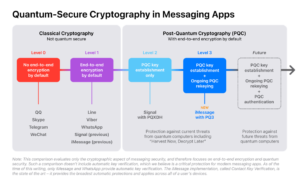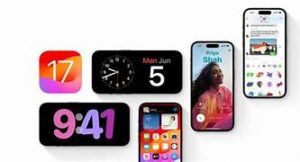The next iPhone update is so close, you can almost hear it coming in to land.
There are many big changes coming, from a big iMessage security update to improvements to Stolen Device Protection. Now, Apple has just made a statement that completely reverses its position on one key element: progressive web apps.

Next iPhone
Progressive Web Apps are those web clips that are designed to provide a user experience similar to native apps but using the web rather than an actual app, and users can put them directly onto their home screens.
As part of its compliance with the Digital Markets Act in the European Union, Apple said that it was removing support for PWAs: Full details are here; please read to the end.
However, things have just changed, with Apple confirming the changes in an “Update on apps distributed in the European Union”.
Much of the document remains the same, but there are changes, as found in one of the FAQs. Here’s what Apple has said in the update:

“Previously, Apple announced plans to remove the Home Screen web apps capability in the EU as part of our efforts to comply with the DMA.
The need to remove the capability was informed by the complex security and privacy concerns associated with web apps to support alternative browser engines that would require building a new integration architecture that does not currently exist in iOS.
iOS 17.4: Apple Unveils Astonishing New iPhone Feature That Will Revolutionize Communications
There were already plenty of reasons to look forward to the next iPhone update, due in early March. But now, Apple has announced something completely unexpected, which will make a huge difference.
Get ready for quantum computer protection for iMessage. Seriously.

In a support note issued on February 21, Apple said, “Today we are announcing the most significant cryptographic security upgrade in iMessage history with the introduction of PQ3, a groundbreaking post-quantum cryptographic protocol that advances the state of the art of end-to-end secure messaging.”
If you thought that Apple already had encryption in iMessage, you’d be right. But this takes things to another level. Apple says it will have “the strongest security properties of any at-scale messaging protocol in the world.”

Other services take security seriously, too, with Signal announcing a “post-quantum cryptography security enhancement.
iOS 17
Apple has welcomed this and said that it offers level 2 security. Current iMessage security, until iOS 17.4 arrives, manages level 1, in Apple’s view, as does WhatsApp, it says. When iOS 17.4 is out, PQ3, in Apple’s judgement, will reach, you guessed it, level 3 of security.
It will also arrive on other Apple platforms that have iMessage, namely the iPad, Mac, and Apple Watch.
If you’re wondering where quantum computing comes in, it’s this.
It’s thought that in the future, quantum computers will be able to overcome the encryption levels available today. Which means that if hackers, for instance, can get hold of images now, they can work out what they said when quantum computers are up to it.
Apple says, “A sufficiently powerful quantum computer could solve these classical mathematical problems in fundamentally different ways and therefore—in theory—do so fast enough to threaten the security of end-to-end encrypted communications.
Although quantum computers with this capability don’t exist yet, extremely well-resourced attackers can already prepare for their possible arrival by taking advantage of the steep decrease in modern data storage costs.
The premise is simple: such attackers can collect large amounts of today’s encrypted data and file it all away for future reference.

Even though they can’t decrypt any of this data today, they can retain it until they acquire a quantum computer that can decrypt it in the future, an attack scenario known as Harvest Now, Decrypt Later.”
Nobody wants their messages seen by others, whether that’s just innocuous nonsense like “I’m on the bus, home in 20,” detailed business-critical messages, or strategic plans sent in the field in a war zone.
Privacy is central to Apple, with the company describing it as a fundamental human right. This kind of security upgrade is to be welcomed and offers real peace of mind.

















